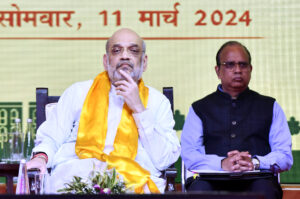Cyberattack hits Ukraine government websites

[ad_1]
“As a result of a massive cyberattack, the websites of the Ministry of Foreign Affairs and a number of other government agencies are temporarily down,” Foreign Ministry spokesman Oleg Nikolenko said on his official Twitter account on Friday.
“Our specialists have already started restoring the work of IT systems, and the cyberpolice has opened an investigation,” he added.
“According to an investigation by the Center for Strategic Communications and Information Security, the first data suggests that the attack was carried out by the Russian Federation,” the Ukrainian Information Ministry said in a statement.
“This is not the first time or even the second time that Ukrainian Internet resources have been attacked since the beginning of the Russian military aggression,” it added.
Most of the affected state resources have already been restored, according to Ukraine’s security service, who said that personal data had not been breached.
Early Friday morning local time, Ukrainian government websites, including that of the Foreign Ministry, displayed dark screens with a threatening text that said Ukrainians’ personal information had been hacked.
“Ukrainian! All your personal data has been uploaded to the public network. All data on the computer is destroyed, it is impossible to restore them,” the message, published in Ukrainian, Russian and Polish, read.
“All information about you has become public, be afraid and wait for the worst. This is for you for your past, present and future. For Volhynia, for the OUN UIA [Organization of Ukrainian Nationalists Ukrainian Insurgent Army], for Galicia, for Polesie and for historical lands,” the web page read.
The UIA and OUN were Ukrainian ultranationalist groups that fought for independence during the Soviet era, while Galicia, Volhynia and Polesie are areas from which they historically drew high levels of support.
A statement from Ukraine’s Ministry of Culture and Information Policy suggested that the text mentioned the groups and regions as a “way to conceal the “Russian footprint” by hackers.”
“It is obvious that this was done on purpose to cast a shadow over the hacker attack on Poland: Russia and its proxies have been working for a long time to create the quarrel between two friendly neighboring countries,” the ministry added in a statement.
The Security Service of Ukraine said in a statement that although “provocative messages were posted on the main page of these sites,” the content of the sites was not changed, adding “the leakage of personal data, according to preliminary information, did not occur.”
The websites of the ministries of education, foreign affairs, sport, energy, agrarian policy, veterans, environment and the state emergency service of Ukraine and the state treasury were targeted, according to state media Ukrinform.
The Ministry of Education and Science, whose official website is down, directed citizens to use the ministry’s official social media channels on Friday while the issue is being resolved.
The European Union’s chief diplomat Josep Borrell on Friday condemned the cyberattack, adding that it is “difficult to say” who is behind the hacks.
“We have to say, this deserves to call for a big condemnation,” he told reporters at an EU foreign ministers meeting in the western French city of Brest.
“We are going to mobilize all our resources to help Ukraine to tackle this cyberattack. Sadly, we knew it could happen,” he added.
Ukrainian Foreign Ministry Spokesman Oleg Nikolenko said Friday that it is “too early to draw conclusions” as to who is behind the attack, but said there is a “long record of Russian cyber assaults against Ukraine in the past.”
Separately, Ukraine’s Ministry of Defense alleged in a statement Friday that Russian special services are preparing provocations against servicemen of the Russian Armed Forces in order to accuse Ukraine.
The statement from the ministry’s intelligence directorate said: “The military units of the aggressor country and its satellites receive orders to prepare for such provocations.”
CNN has contacted Russia’s defense ministry for comment.
Tensions with Russia at a high
The US and Russia met this week for high-stakes talks aimed at averting a war, as Russia continued to mass troops near Ukraine’s borders amid a dispute over NATO activities in Eastern Europe and the prospect that Ukraine could join the military alliance.
Ukraine has said that Russia is trying to destabilize the country ahead of any planned military invasion, and Western powers have repeatedly warned Russia against further aggressive moves.
The Kremlin denies it is planning to attack and argues that NATO support for Ukraine — including increased weapons supplies and military training — constitutes a growing threat on Russia’s western flank.
A senior US official warned that the “drumbeat of war is sounding loud” after a week of talks ended Thursday without clear breakthroughs.
Russian officials suggested they were poised to abandon discussions over the US and NATO’s refusal to entertain Moscow’s key demands: a guarantee that Ukraine will never be permitted to join NATO and that the alliance roll back its expansion in Eastern Europe.
On Friday, Russian Foreign Minister Sergey Lavrov told a press briefing that while Moscow’s proposals were “aimed at reducing the military confrontation, de-escalating the overall situation in Europe, exactly the opposite is happening in the West.”
He said: “We absolutely do not accept the appearance of the North Atlantic Alliance on our borders, especially taking into account the course pursued by the Ukrainian leadership – both by the former and the current ones. These are truly the red lines and they know it.”
Katharina Krebs reported from Kiev and Jake Kwon reported from Seoul. Jeremy Herb, Jennifer Hansler, Alex Marquardt, Kylie Atwood and Dalal Mawad contributed reporting.
[ad_2]
Source link






